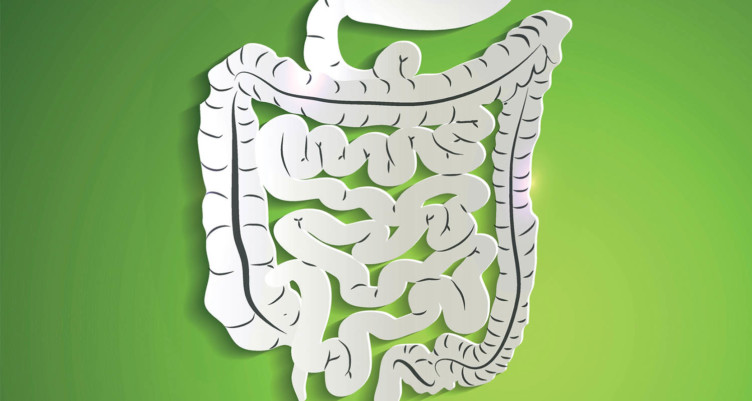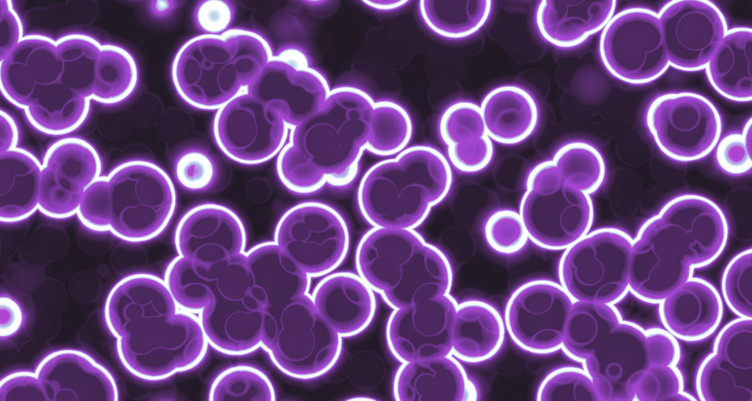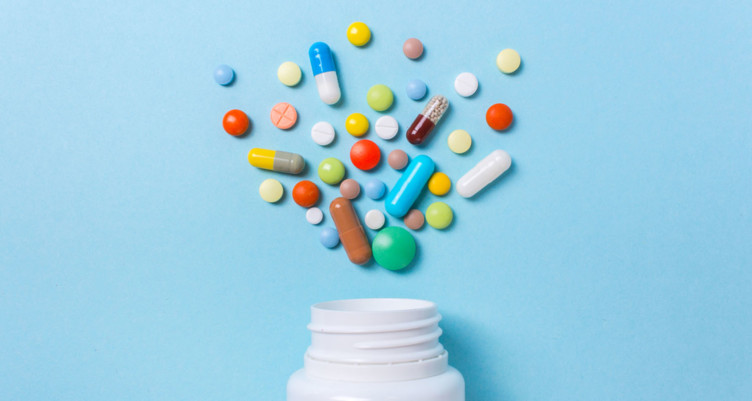The Ultimate Digestive Enzymes Guide

- Digestive enzymes convert the food you eat into the nutrients your body’s tissues and cells need.
- Digestive enzymes can help manage accidental exposure to food sensitivities or while transitioning to a new diet.
- Like probiotics and eating fiber-rich foods, digestive enzymes are just one piece of the puzzle when it comes to support your gut health. Other gut-support practices include managing stress and taking gut health supplements like Bulletproof InnerFuel Prebiotic.
Digestive enzymes break down food into the nutritional building blocks that your body needs. Digestive enzymes are naturally released to assist the digestive process. But in some instances, your body might not produce enough of a specific enzyme or enzymes.
If you experience occasional digestive issues like bloating, indigestion or gas after eating certain foods or you are having difficulty transitioning to a new diet, you might benefit from taking digestive enzyme supplements. (But always talk to your health-care provider before taking any new supplement.)
With so many brands on the shelf, it’s hard to know where to start — and whether you need digestive enzyme supplements. Read on for a jump-start guide to digestive enzymes: what they are, when they might help and what to look for.
What are digestive enzymes?

Enzymes are proteins that your body produces to initiate or speed up specific chemical reactions.[1] Your pancreas, stomach, salivary glands and the brush border of your small intestine all release enzymes that help break down your food into nutrients that your body can absorb. Enzymes also protect your gut by breaking down inflammatory compounds such as lectins, which can contribute to leaky gut.[2] [3]
Each enzyme or group of enzymes targets a specific nutrient. For example, protease enzymes break down protein into amino acids and lactase digests lactose sugars in milk and other dairy products. They are also released by specific organs, based on where those nutrients are broken down in the digestive process. For example, the tongue, stomach and pancreas all release the enzyme lipase to help break down dietary fats.
There are common digestive enzymes some people take after eating hard-to-digest foods like dairy products and certain complex carbohydrates (including beans). In these situations, supplementing enzymes can help your digestive system [4] break down food to minimize gastrointestinal distress.
If a specific food causes problems after you eat it, talk to your doctor or dietitian about how you’re feeling. For example, you may want to try a gluten-free diet if you have bloating, gas or occasional diarrhea after eating food that contains wheat. Food intolerances affect up to 20% of US adults[5]. Lactose intolerance is among the most common, as many adults no longer produce lactase[6], rendering them unable to digest dairy.
Avoiding foods that give you occasional digestive discomfort is often better than relying on over-the-counter enzyme supplements to help you tolerate them. As part of a daily gut health routine, practice habits that support healthy digestion and a thriving gut microbiome. Stay hydrated, eat more fiber-rich foods and gut health supplements and manage your stress (more on that below).
What factors lower enzyme production?

Even the most nutrient-dense, cleanest foods can cause digestive discomfort if your body doesn’t have the enzymes required to break it down into smaller nutrients. Pancreatic problems, damage to the intestinal brush border, or inflammatory digestive conditions, such as celiac or Crohn’s disease, can all interfere with regular digestion.
“Anything that’s going to drive inflammation in the gut is going to cause the brush border to be disturbed, and can impact pancreatic function as well,” says Dr. Tim Gerstmar, a Seattle-based naturopathic doctor and a digestive health and autoimmune specialist[7].
This can range from leaky gut and bacterial overgrowth, to minor food intolerances[8]. With insufficient enzyme supplies, undigested proteins can pass through your digestive system and cause inflammation. Low stomach acid is also linked to low enzyme production, and your body naturally produces fewer enzymes as you age[9].
But some people are losing enzymes thanks to a more pervasive, yet common, threat, says Gerstmar.
“The single biggest dysfunction that impacts digestion is just stress,” he says.
Stress impacts gut health in many ways. High stress taxes your digestive system by sending your body into “fight or flight” mode, where your body reduces the energy it uses for digestion. Chronic stress can lead to low levels of digestive enzymes and difficulty fully digesting meals. Undiagnosed, this can lead to malabsorption or low levels of nutrient absorption.
Manager your stress and taking gut health supplements can help support healthy digestion. Bulletproof Zen Mode offers stress support and Bulletproof InnerFuel Prebiotic delivers gut health and immune support.†
Signs you’re dealing with low enzyme counts
- Frequent visible pieces of undigested food in stool
- Steatorrhea (undigested fats or oils in stool)
- Feeling heaviness in your stomach after eating
- Diarrhea or constipation
- Gas or bloating
- Unintended weight loss
- Malnutrition symptoms
- Stomach discomfort
Enzyme deficiencies can be difficult to diagnose. They often share symptoms with other digestive issues. When you notice symptoms like these even when eating nutritious foods, you may have an issue with your enzymes or a food intolerance[10].
There are other instances where digestive enzyme supplements can help you support your digestion. Keep reading to find out more.
Related: This Poop Chart Tells You What’s Happening in Your Gut and How to Fix It
Are digestive enzymes the answer?

A good first step when faced with these symptoms is to try an elimination diet. It removes common enzyme inhibitors like grains and legumes (and even some vegetables that may be harder to digest). You may be able to achieve healthy digestion by changing what you eat.
While specific tests for enzyme levels can be useful for diagnosing serious pancreatic enzyme problems, Gerstmar recommends stool tests to confirm most enzyme issues. These tests can show your healthcare provider a more comprehensive picture of your enzyme health across your entire digestive tract, plus digestive markers such as bacterial or fungal overgrowth or gut inflammation.
Ideally, your body produces enough of any given enzyme to digest your typical diet. Significant changes – such as shifting to a high-fat keto diet or a high-fiber vegan diet – can overwhelm your digestive system at first. Supplementing with the best digestive enzyme supplements may help smooth the transition and support your overall health and wellness.
Before you take any supplements, focus on the pillars of a healthy lifestyle to support optimal digestion:
- eating a nutrient-dense diet based on whole foods
- avoiding processed and inflammatory foods
- managing your everyday stress
- staying hydrated
- getting adequate healthy sleep
- paying attention to how you feel after eating
Choosing the right enzymes

If you are interested in trying digestive enzymes, read the labels and always follow the manufacturer’s instructions for taking a dietary supplement. You should also speak with your healthcare provider or dietitian to figure out which might be the best digestive enzymes for you.
Different combinations or dosages may work for different people. Avoid brands with fillers or artificial ingredients and decide whether vegetarian capsules or plant-based digestive enzymes are necessary for your lifestyle.
Types of digestive enzymes supplements
Enzyme supplements can come from animal, plant, or fungal sources. Gerstmar usually recommends fungal-sourced enzymes for his patients as a potent, affordable, and broad-spectrum option. Note: Since these enzymes are derived from mushroom or fungal extracts, they can have adverse effects on people with extreme fungi sensitivities.
Animal-derived enzymes (usually pancreatic products from pigs) are broad-spectrum, potent, and most like human enzymes. They tend to be more expensive and less shelf stable. They can be difficult for people with more sensitive immune systems to handle.
Plant-based natural digestive enzymes, such as bromelain (found in pineapple) or papain (found in papaya), tend to be more limited and less potent. However, they are affordable and shelf-stable options.
Supplements can assist when your enzyme production isn’t sufficient or when you want to target a particular deficiency or food intolerance. Specific enzymes tackle specific compounds in your diet, so identifying which foods you struggle to digest can help you determine the enzymes you need. Most often, a combination supplement with a blend of multiple digestive enzymes can provide the best support for low enzyme production.
Below, you’ll find a quick list of some common digestive enzymes and the foods they help target.
- Cellulase: Cellulose in fiber-rich plants
- Lipase: Fats and oils
- Protease: Proteins
- Peptidase: The proteins gluten or casein
- Alpha-galactosidase: Starches in legumes
- Pectinase: Pectin
- Amylase: Starches
- Glucoamylase: Maltose sugar
- Invertase: Sucrose sugar
- Lactase: Lactose sugar from dairy
When starting a digestive enzyme supplement, note how it impacts your digestion and whether it causes any side effects for a few days. While doses differ by brand, it helps to take enzymes directly before or with a meal.
Diet, stress, or inflammation are often at the root of enzyme deficiencies, and supplementation might not always be the best answer to healthy digestion and overall health and wellness.
“The biggest factor that affects poor digestion is going to be eating too fast, eating too big of a meal and being stressed out while you do it,” says Gerstmar. “You’re setting yourself up for poor digestion.”
Remember that digestive enzymes are not a panacea. If a lactase tablet helps you feel better after eating dairy, that is a healthy habit on occasion. Over time, you may want to revisit how dairy fits into your lifestyle. You may decide to eat less of it or omit it all together. Digestive enzymes can be a powerful tool for immediate relief, but, the solution comes from identifying sources of inflammation and stress.
Read on to learn more about how—and why—to improve your gut health.
Sign up for early access to sales, product launches, the latest Bulletproof news and more!
This article has been updated with new content.



